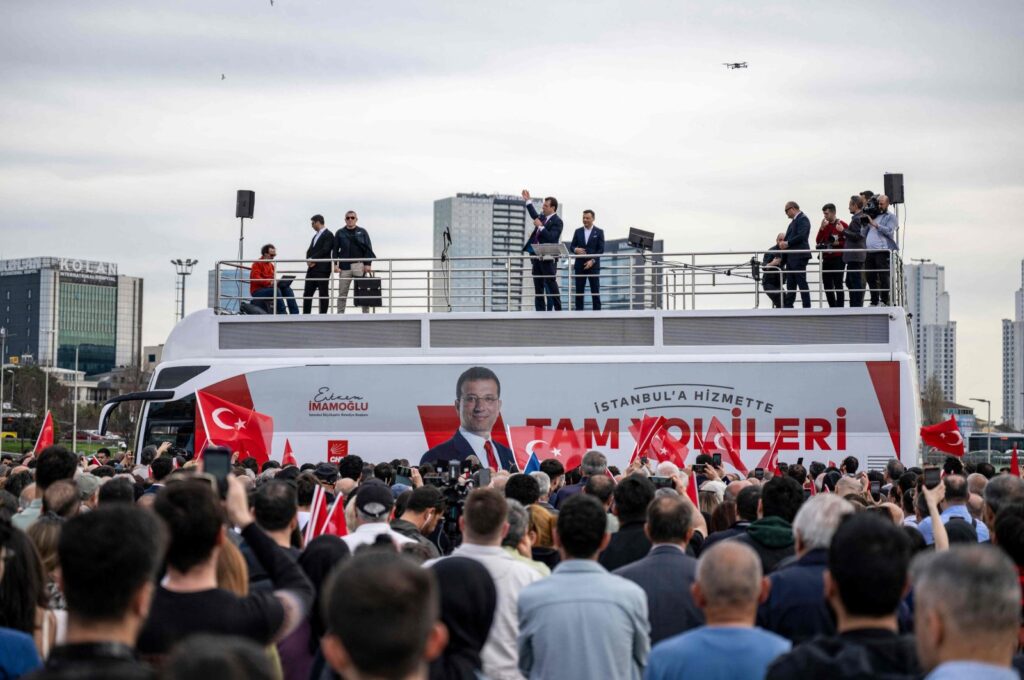Turkiye's election results are surprisingly full of wisdom. Every election, voters send messages so finely tuned that it's often difficult for political parties to read them.
The 70-year history of multiparty politics has taught everyone that Turkish voters are sophisticated, careful, sensitive, attentive, and nuanced in what they say to the government and the opposition. I know. It is as if there were not 60 million Turkish voters voting, but one person putting pen to paper and handing out the votes according to the message they wanted to convey.
When Turkish citizens voted in last year's general election, they evaluated Turkiye's security and foreign policy issues, President Recep Tayyip Erdoğan's leadership and international competition, and brought the ruling Justice and Development Party (AK Party) to power. maintained. In light of recent local elections, voters faced remaining issues rooted in the previous general election and confronted the government on these issues. In particular, the effects of the pandemic, regional conflicts, and the huge earthquake that Turkiye faced last year highlight the complex challenges facing the government, highlighting in particular that rebuilding earthquake areas requires an allocation of resources close to the annual budget. did.
This unexpected and unavoidable budget anomaly particularly affected fixed income groups, low income groups, economically vulnerable groups and pensioners. In the 2023 election, voters kept this issue off the table, given global risks, national security, and the country's future. However, in the recent local elections, about 5-6% of AK Party voters did not go to the polls, compounding the problems that had accumulated over the past two elections and, in a sense, reflecting their anger in their votes.
The slight decline of 5% to 6% reflected a notable increase in votes for the opposition Republican People's Party (CHP), which jumped by about 8% to 10%. As a result, the CHP celebrated an unexpected victory, while the AK Party experienced an unexpected setback.
Leadership after setbacks
Following the election results, President Erdoğan took the stage on the balcony of the headquarters, as usual. Demonstrating his keen leadership acumen along with his authority as a commander, he delivered speeches that astounded everyone, further cementing his status as a formidable leader.
Contrary to expectations of a fiery speech, President Erdoğan's speech was surprisingly calm and optimistic, showing genuine concern for his constituents. He accepted the principles of democracy and respected the people's choices. Erdogan framed his own answer not as a “why” question but as an opportunity to discern the underlying message conveyed by voters. This display of humility and introspection made it arguably one of the most exemplary speeches by a leader after an electoral setback.
At the party leadership meeting the next day, President Erdoğan emphasized his extremely important remorse for the election results, amidst many critical assessments. He stressed that it is essential to hold companies accountable by prioritizing an introspective examination of their own shortcomings before scrutinizing external factors. Indeed, this focus on self-reflection and internal improvement before tackling broader challenges exemplifies a strategic direction for driving organizational growth and strengthening resilience.
He also highlighted the party's existential dilemma, deploring not only a bloody loss but also a profound “loss of soul” in the collective quest to shape the future.
The next day, President Erdoğan visited a cafe and had face-to-face conversations with young people, symbolically demonstrating his enduring popularity and resonance within society.
My guess is that President Erdoğan is choosing to visit cafes in modest locations frequented by the most marginalized sections of society rather than in luxurious establishments in the bustling center of Ankara. is. His sincere personality and acute sensitivity to the plight of the oppressed allow him to naturally forge connections in the quiet, unassuming corners of the city, where he is able to empathize with the struggles and aspirations of everyday citizens. It will be like this.
New duties for political officials
In this changing context, the AK Party faces opportunities for reform and revitalization, prompting concerted efforts toward revitalization. Meanwhile, the CHP is transcending traditional sociopolitical boundaries and engaging with constituencies previously unaccustomed to its reach and influence.
It is clear from the silence of CHP leaders that they too are shocked by the outcome. The CHP will soon find itself facing rational voters. In a sense, Turkish voters have imposed new obligations on the government and the opposition.
The AK Party has a chance to rule for four years. We aim to improve society during such a period. I believe that if the economy improves as a result of reform efforts, it will pave the way for the government to fully participate in politics again.


